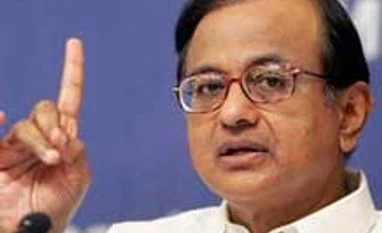Addressing the National Editors Conference here, he said with liberalisation of FDI and other measures, the government has travelled considerable distance on the road to fiscal consolidation and reforms.
In further liberalisation of norms for investment by Foreign Institutional Investors (FIIs) in government securities and corporate bonds, he said norms have been rationalised.
More From This Section
"There were a number of sub divisions and in order to rationalise, it is proposed to merge the existing sub limits and create only two broad categories," he said.
One category of basket, he said, will consist of government securities of $25 billion and the second basket will consist of all corporate bonds of $51 billion.
"Therefore from April 1, there will two baskets, one of $25 billion for government securities and (the other) of $51 billion for all corporate bonds," he said.
Promising more reforms, Chidambaram said that "we are steadily and surely working on next generation of reforms".
The recent economic reforms include liberalisation of foreign direct investment (FDI) norms in multi-brand retail and aviation, partial deregulation of diesel prices and caping supply of subsidised LPG.
Referring to the Food Security Bill, Chidambaram expressed confidence Parliament will soon pass it.
"I am confident it (Food Security Bill) will be passed soon by Parliament, possibly in the Budget Session itself," he said.
To a query regarding West Bengal Chief Minister Mamata Banerjee's allegations that Centre was discriminating against the state in allocation of funds, the Finance Minister said funds are allocated to states as per the constitution and recommendations of the Finance Commission.
"...No state is preferred, no state is discriminated against...Charge of discrimination is wrong and I reject the charge," Chidambaram said.
The Minister further said that he has never favoured the idea of special package for states.
However, he said, the new Finance Commission has been asked to look into the problems of debt stressed states and advise government on how to deal with them.
Chidambaram also announced that the current SEBI auction mechanism allocating debt limits for corporate bonds will be replaced with the system similar to the infrastructure bonds.
"In order to allow large investors to plan their investments, government will review the foreign investment limit on corporate bonds when 80% of the current limit is reached," he said, adding the limit on government bonds will be enhanced as and when needed.
However, in order to provide a guide to investors, he said, "I am happy to state that the annual enhancement of the government bond limit will remain within 5% of the gross annual borrowing of the central government excluding buybacks".
Referring to global economy, the Minister said the euro zone crisis has impacted investment around the world and India was no exception.
"The risk to global stability is the eurozone crisis. There is no definitive solution still in sight," he said adding that this has led to sharp deceleration in exports.
It may be recalled that the economic growth has come down after touching 9.3% in 2010-11. The economy grew by 6.2% in 2011-12 and is expected to grow at a decade low of 5% in the current fiscal.
Finance Minister P Chidambaram today rejected any suggestion that Jammu and Kashmir was "back to square one" after the execution of Afzal Guru and hoped that people of the state will not heed to call of separatists.
"I don't get the impression that we are back to square one...I agree that after the execution of Afzal Guru (Parliament attack convict) there have been some protests and agitation and rise in the level of violence. I sincerely hope that violence will subside," he said.
Replying to a question on the situation in the state at the National Editors' Conference here, Chidambaram said unless there is sense of peace and security Jammu and Kashmir cannot develop. He was confident that the present phase of "uncertainty" will come to an end.
"I am told yesterday was relatively peaceful. There was no curfew yesterday. I sincerely hope that people of Jammu and Kashmir will not heed the call of separatists but heed the call of government and civil society and try to help restore peace and order in sense of security.
"I am sure in month of April-May we will restore sense of security that the people of Jammu and Kashmir want," he said.
He said the state's prime developers were tourism, both pleasure as well as religious, which boomed in 2008 and reached a high point.
)